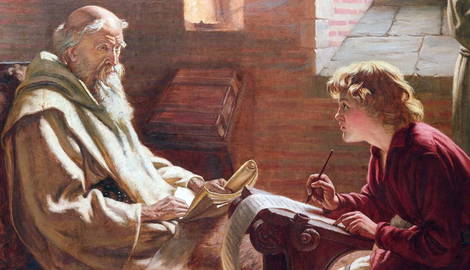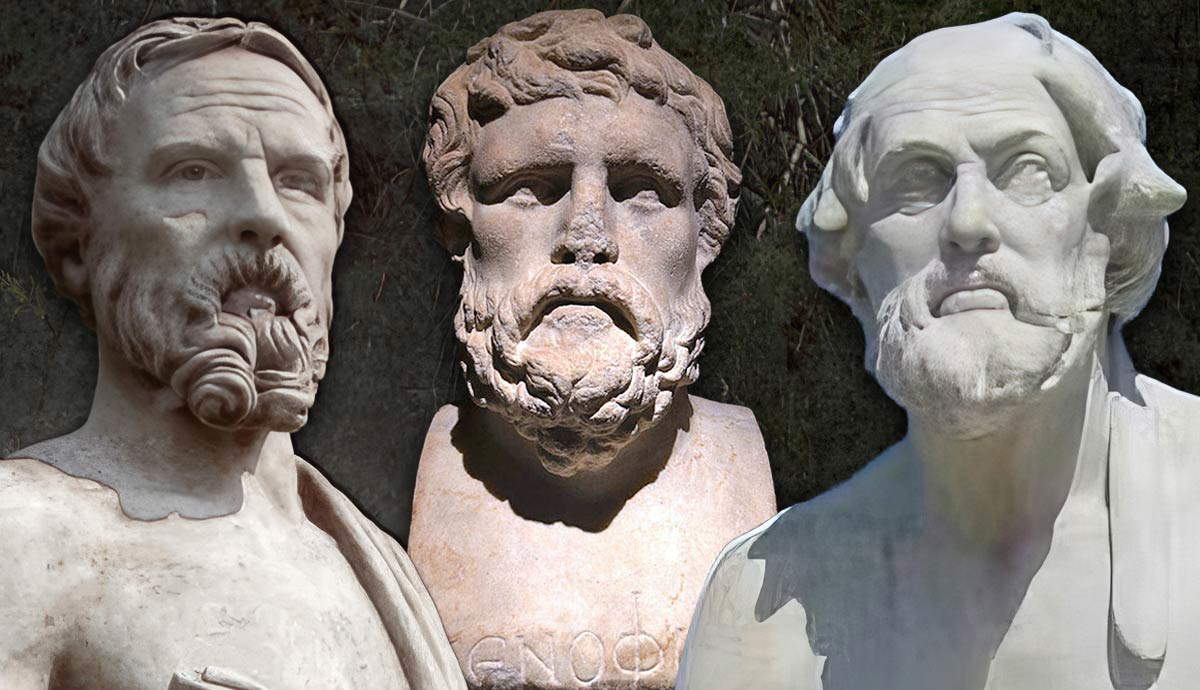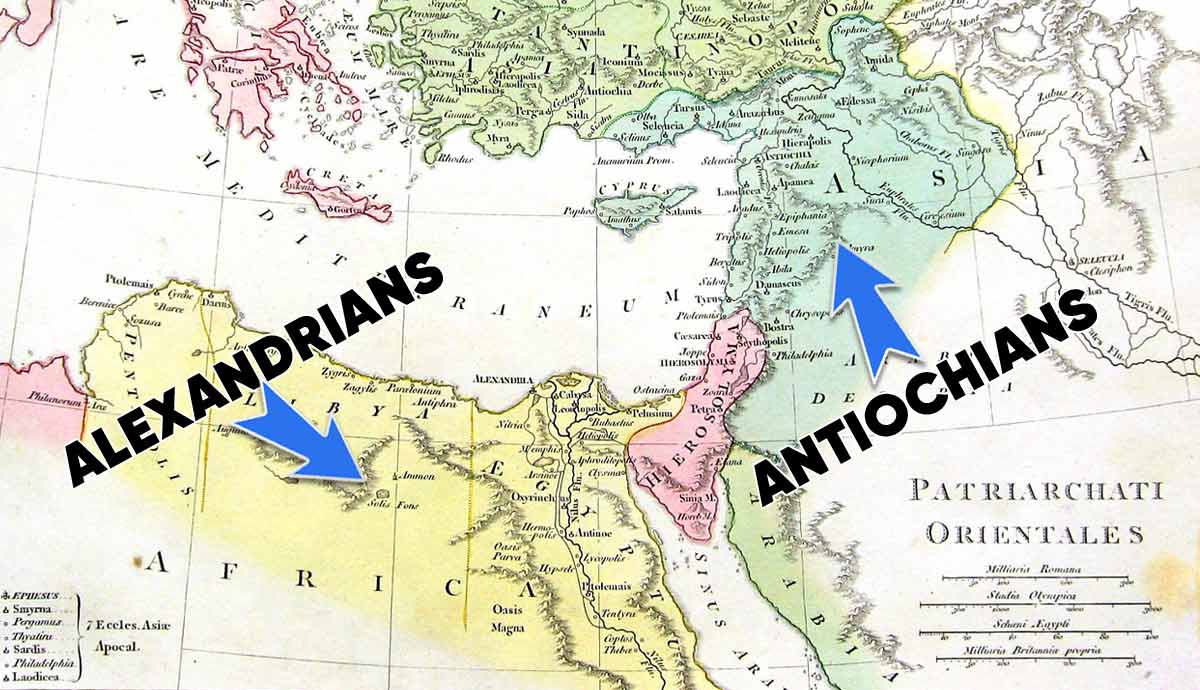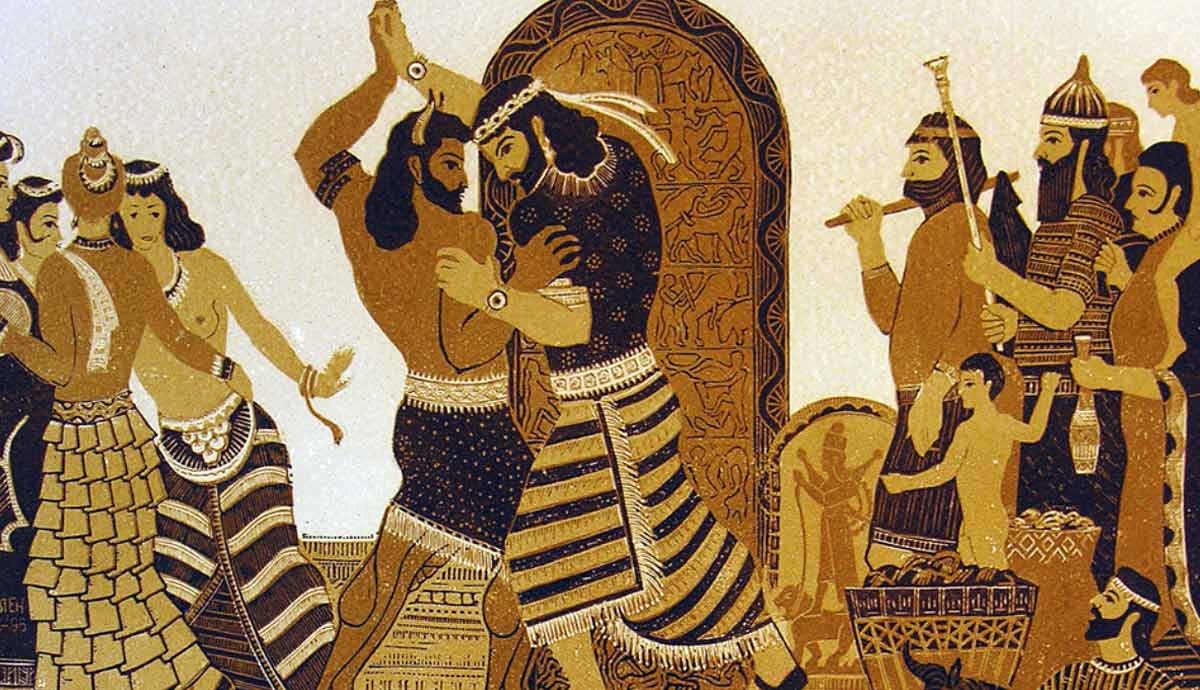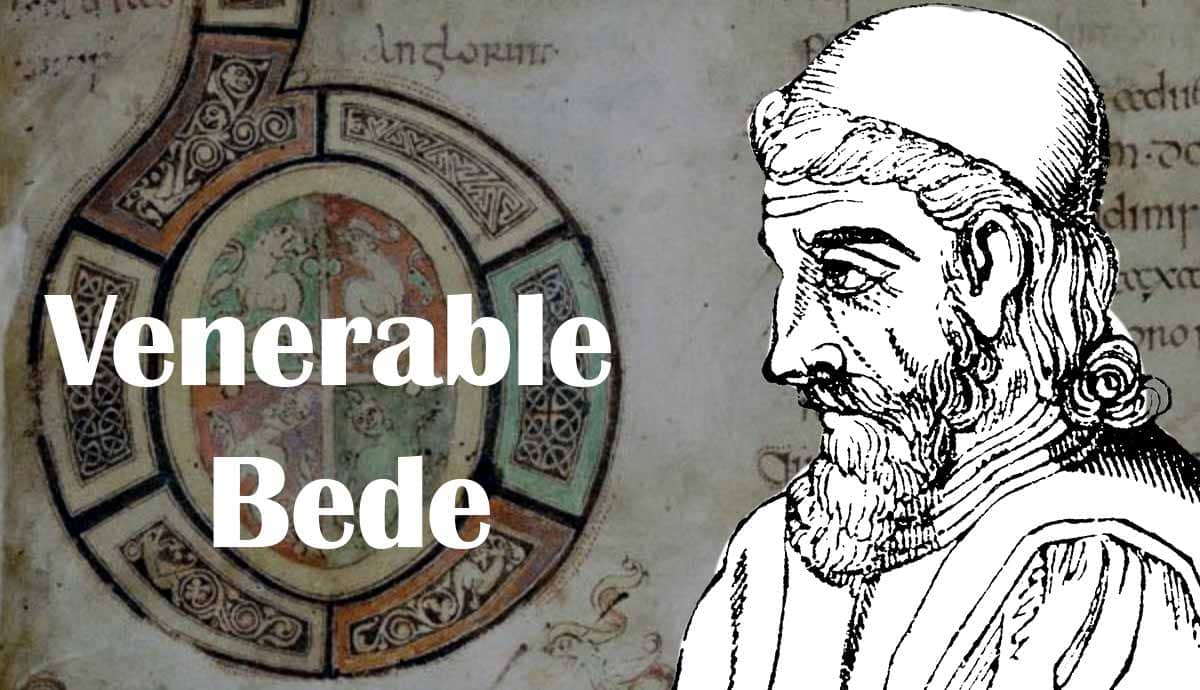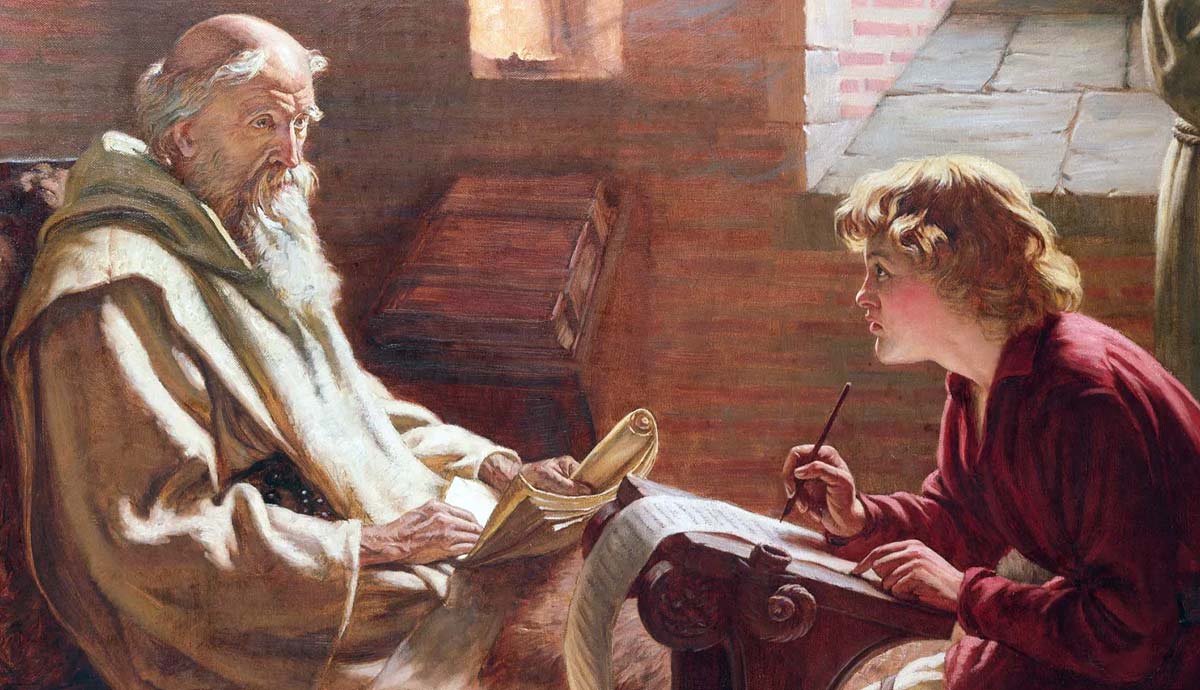
English poetry is of somewhat later development than that of southern Europe and the Middle East. Following the arrival of Christianity into the British isles in the Second century CE, and then the re-establishment of Christianity a few hundred years later, poetry with Germanic roots and heavy Christian influences began to develop.
Major Manuscripts in Old English Poetry
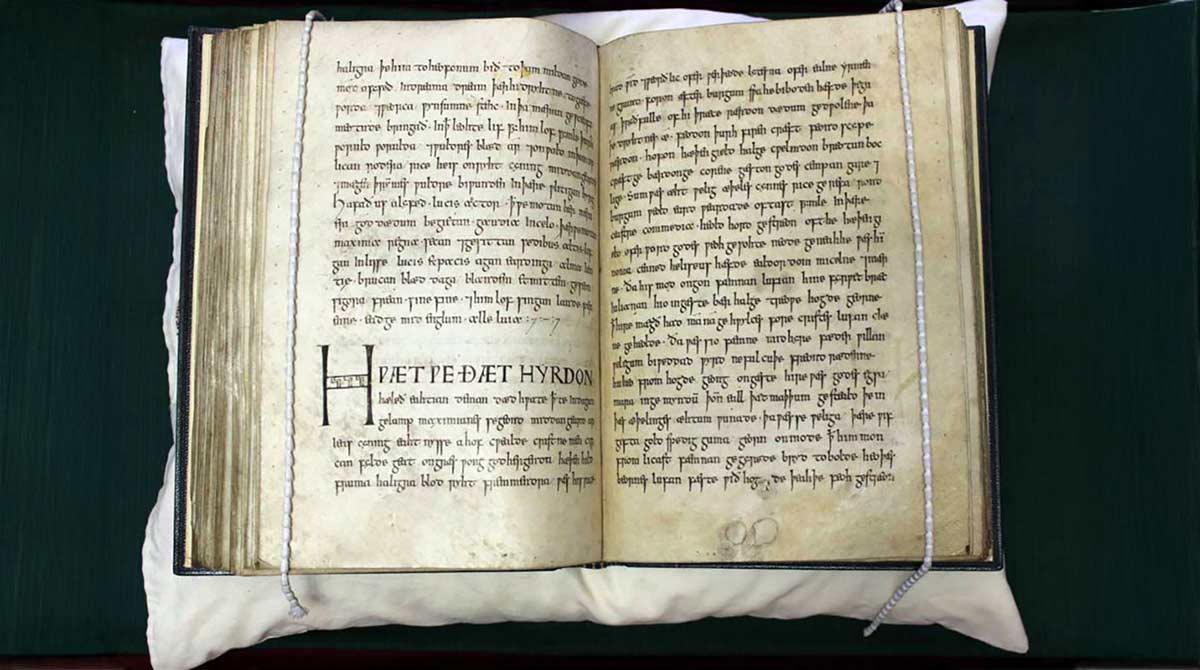
Several medieval sources, as well as some earlier records, either name or refer to about a dozen early English poets, of which only the works of a few remain. Four sources from around the 900s-1000s CE exist that provide the works of early English poets. They are:
- The Junius Manuscript – containing poetical retellings of various Biblical stories
- The Exeter Book – the oldest of the manuscripts, it contains works ranging from riddles to heroic verse.
- The Nowell Codex – contains the oldest version of Beowulf, some works of King Alfred the Great, and other material
- The Vercelli Book – contains poetry typically ascribed to Cynewulf
Also, the Venerable Bede’s Ecclesiastical History of the English People from the 700s provides records of literary figures such as Caedmon and Alfred the Great.
Caedmon
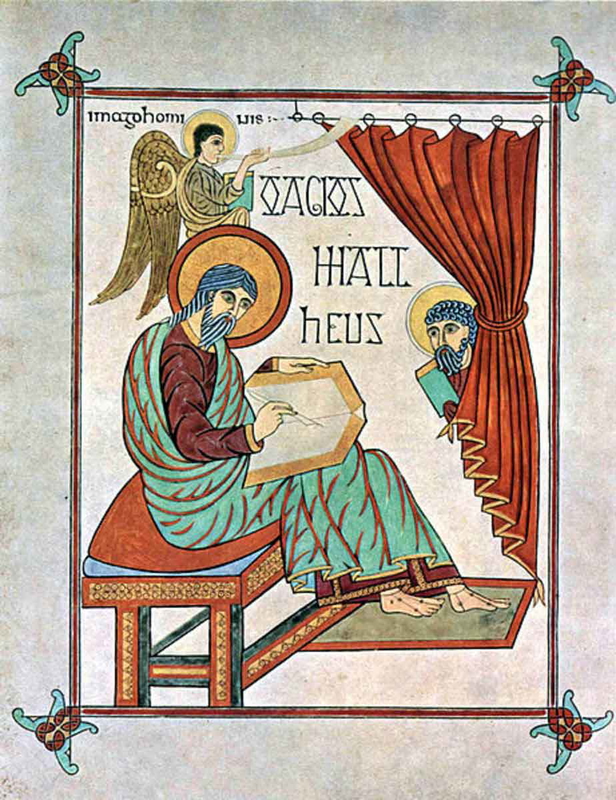
Caedmon was a cowherd-turned-monk who lived in the 600s CE. His skill in poetry was acquired miraculously, as Bede writes:
“… did not learn the art of poetry from men, neither was he taught by man, but by God’s grace he received the free gift of song…”
Only a handful of lines from Caedmon remain, known as Caedmon’s Hymn, considered some of the oldest examples of any Germanic language (of which modern English evolved from).
Cynewulf
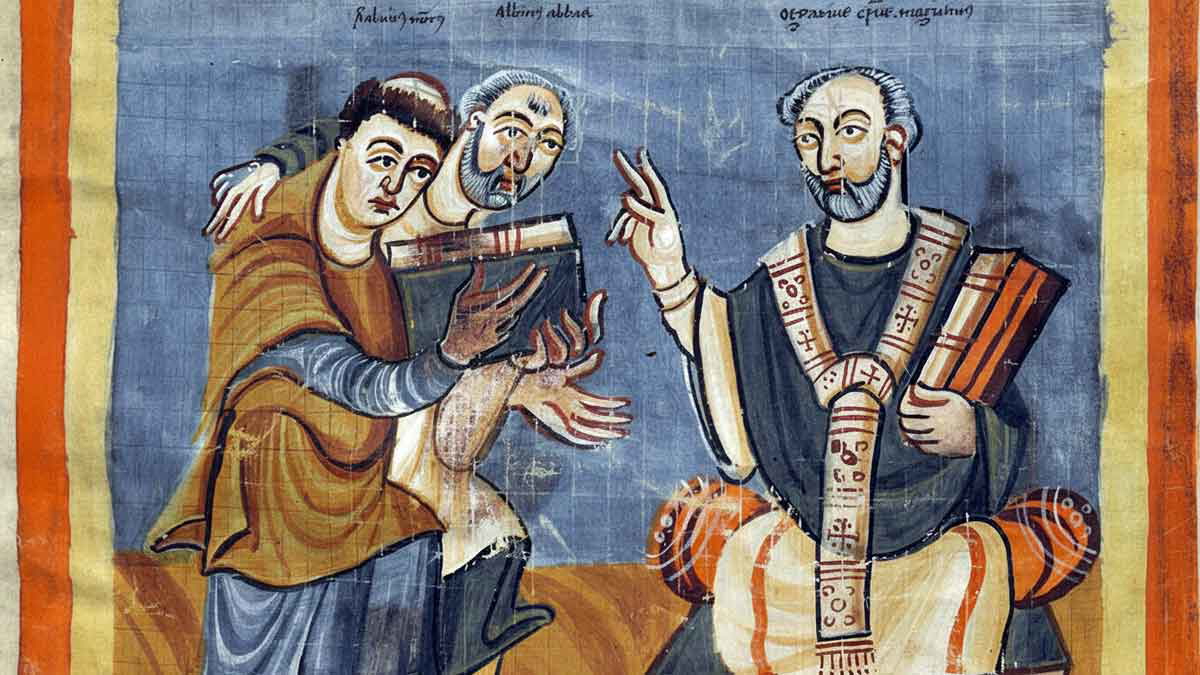
Cynewulf was a 9th century poet whose works were preserved in the Vercelli and Exeter books. His works were mainly tales of martyrdom, and he incorporated his name into runic form within some of his works. Cynewulf was also one of the first English poets to lay claim to his works, rather than remain anonymous.
Alfred, King of Wessex
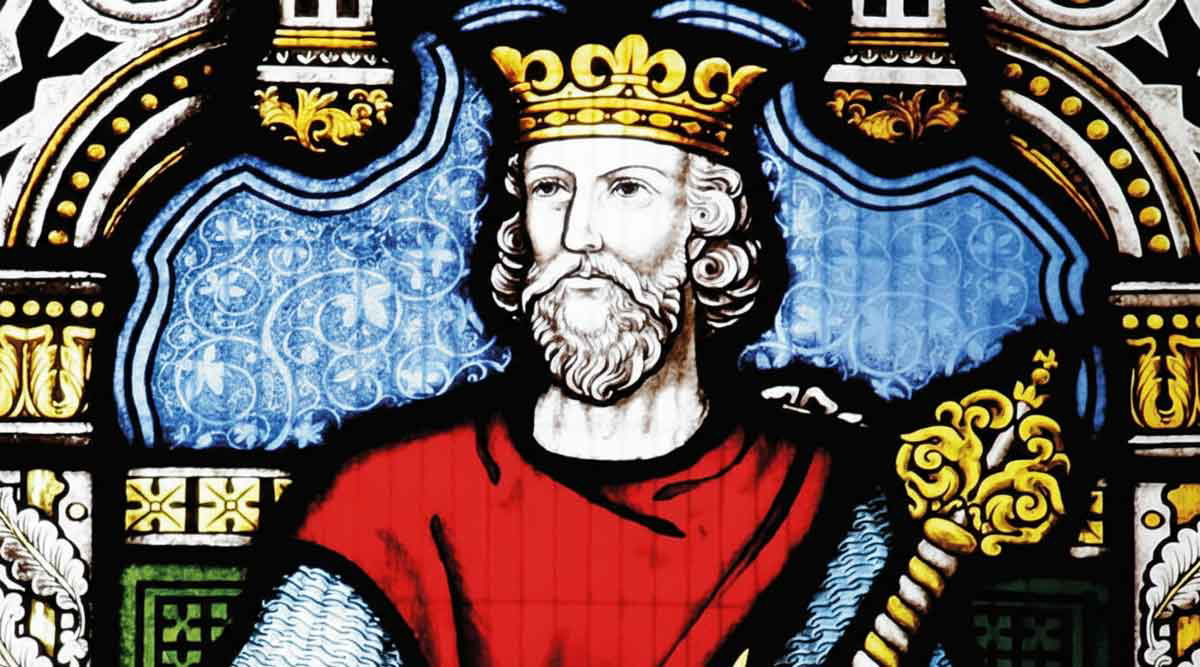
Alfred, King of Wessex, was also known as Alfred the Great. The youngest son of King Aethelwulf and brother to the Christian Aethelbert, Alfred was both an effective administrator and warrior, and undertook to emphasize education within his kingdom. Aldred himself translated several works and directed some translation from Latin into English. Among them was Bede’s Ecclesiastical History and Pope Gregory the Great’s Pastoral Care. He also directed the creation of the Anglo-Saxon Chronicle, which preserved historical knowledge of England at that point.
Aldhelm

Aldhelm was a noble-born Benedictine monk who lived in the late 600s CE. His prominent works include the Aenigmata, a collection of 100 riddles, and On Virginity encouraging a group of nuns on their chastity. His use of hexameters within his poetry was possibly innovative and highly influential on later poetry.
Earlier English Works
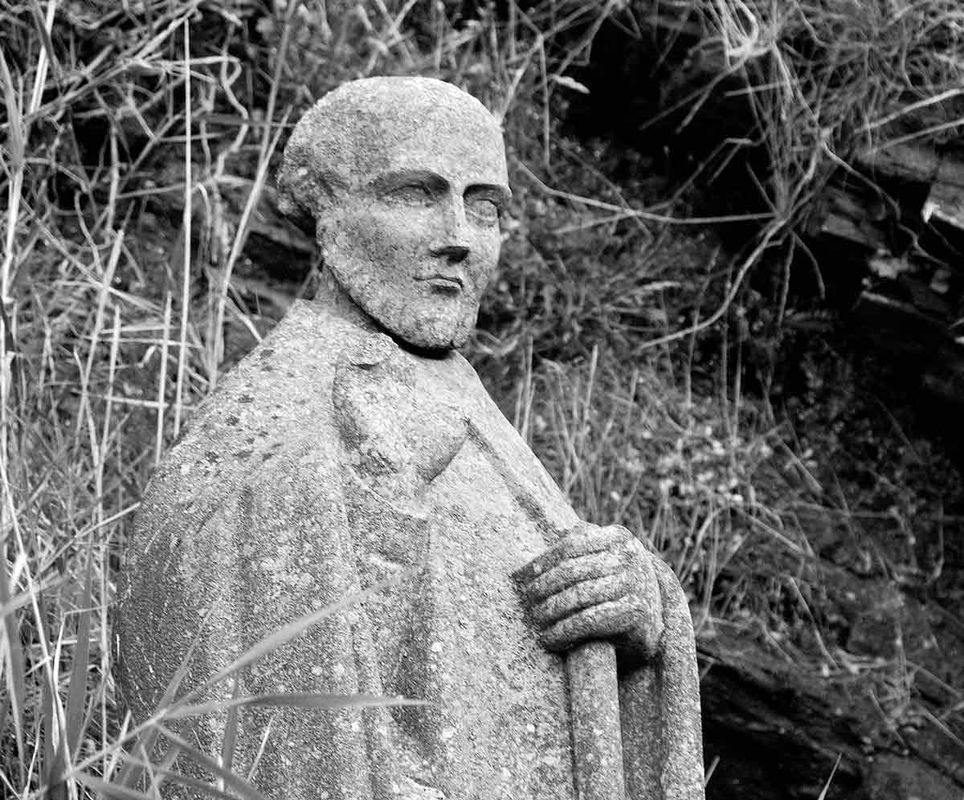
The withdrawal of the Roman forces from England in the 400s CE led to a period in English history with few records and resulted in a generally chaotic period. Before the 600s, few, if any, notable literary or historical works have survived from England, and there may have not been any beyond oral tradition, which may have resulted in some of the Arthurian myths. Gildas, a British monk in the 500s CE is one of the few with any significant writings. His On the Ruin and Conquest of Britain is possibly the earliest contemporary history of English origin.
